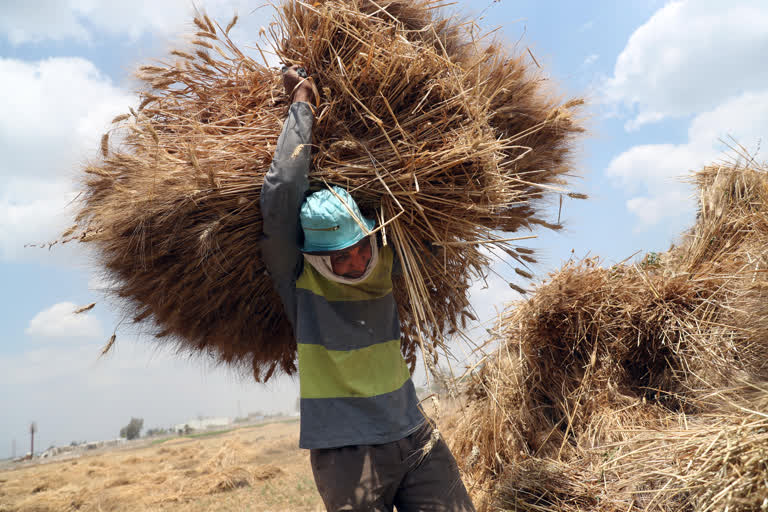New Delhi: The government-announced nationwide lockout that started from Tuesday midnight (March 24) couldn't have come at a worse time, because the time for harvesting of the all-important Rabi crops begins in early April. But a top agricultural economist has said there is no cause for panic and concern as India has enough food stocks to even survive a six-month-long lockout.
A leading expert on agriculture and food policy, Devinder Sharma, told ETV Bharat: "We have so much of food stocks that we don't have to worry. Even if the country is in this emergency mode for the next six months we don't have anything to worry."
But there was a note of caution too: "But distribution is a problem. But I am sure those channels may be activated. The supply chain has to be maintained. It is very important. Foodgrains, vegetables, fruits supply has to be maintained at all costs. If you disrupt that chain there can be food riots. So the government has to be very alert."
Sown from mid-November to December, the most important Rabi crop is wheat with the core crop area being the region that includes Punjab, Haryana and western Uttar Pradesh. This region is also called India's "wheat bowl". Other important Rabi crops are pulses, mustard, rapeseed and vegetables like peas.
"Very clearly agriculture cannot be in a lockdown situation. Agriculture is too important an activity and the government cannot allow it to be ruined. It is not like an industry that you can pull down the shutter and open it again later. It has to be a continuous process," Sharma said.
Read: Surjewala asks Centre to declare crop harvesting an essential service
The farm expert believes the government is doing what it can in these trying times.
"There is no denying that it is an emergency situation and the government has to ensure that the virus spread is minimized. So the government is alert to it and gradually it is creating that space and setting up norms so that agricultural operations can continue."
"The government is trying to work out a mechanism by which farmers can continue with their harvesting and at the same time the procurement situation and they are trying to lay out. Punjab has already announced that procurement will begin after April 15 while Haryana has announced that its procurement will start by April 20," he said.
However, Sharma said that things cannot be expected to happen immediately but the government is trying to work it out. "Let us also give credit to the government. This kind of situation has happened for the first time. So give time for the operation to take place."
Read: Grievance redressal cell set up to resolve problems of food processing: Harsimrat
"Today, for instance, Punjab has said that you can harvest your potato and carry it to the cold storage. Because you can harvest your mustard and keep it home. It is possible but you cannot keep your potato at home. So the government understands that and that is why it has opened up the routes to take the crop to the cold storage," he said.
Sharma also made a case for offering incentives to the farmers. "Look at the crisis the farmers are faced with. They have to sell their produce also. Look at the losses in eggs, look at the losses in milk and other perishables. Farmers are calling me up and telling me they are having to throw their 'mutter' (peas) and tomatoes into the streets. So shouldn't the government compensate them?" he said.



